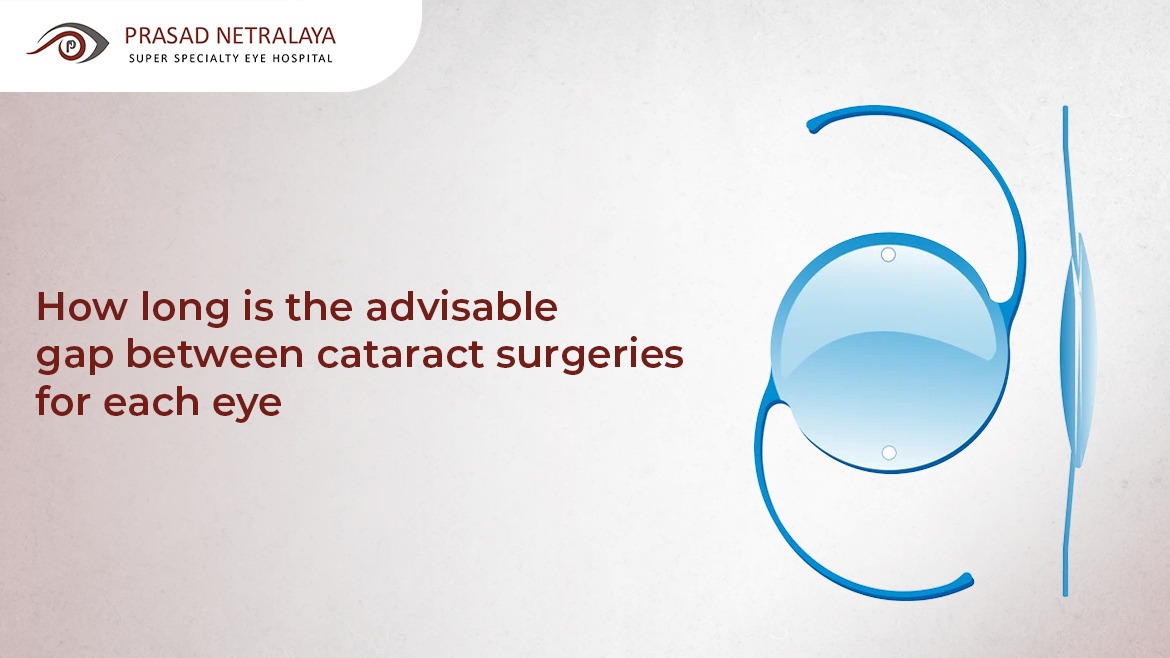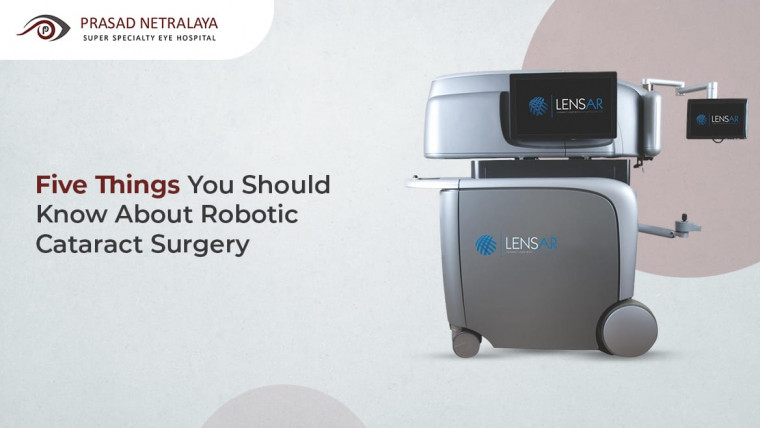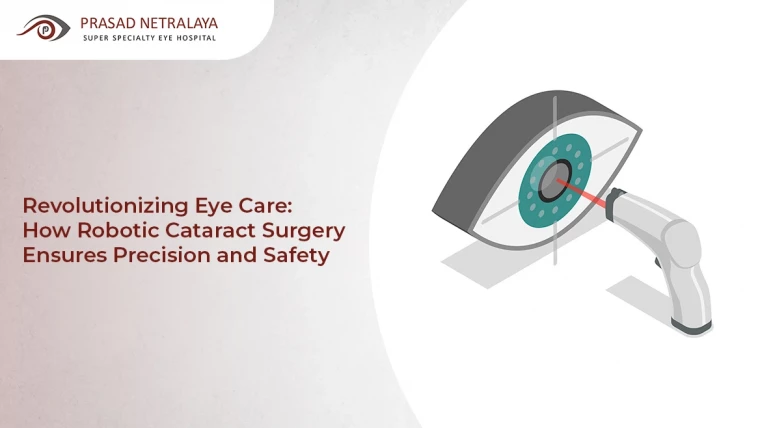Most ophthalmologists perform cataract surgery to restore vision of the person who’s affected by cataracts. However, in some cases, when a person has cataracts in both eyes, they may often find themselves debating on finding the right time gap between the surgeries to achieve their desired result.
This blog mainly explores the factors affecting this decision and intends to help patients make the right choices to achieve the best outcome from their surgery.
Let us help you understand the duration between cataract surgeries, the precautions to take, the complications of the surgery and the best eye clinic to get your surgery done.
Table of Contents
What is cataract surgery?
Cataract surgery involves repairing a person’s vision by replacing the cloudy eye lens with a clear artificial lens.
The blurry/cloudy vision occurs due to cataracts either during old age or at a young age. It requires surgical treatment to preserve your vision and prevent it from worsening.
Can you get cataract surgery done on both eyes at the same time?
It’s quite common for a person to have cataracts in both eyes. When such a condition arises, you will have to undergo cataract surgery on both eyes.
Getting the surgery done for both eyes at once may not be a threat, but it’s usually recommended to keep a gap between each surgery to minimize risks and ensure safe recovery.
What is the advisable wait time between cataract surgeries for each eye?
If you have cataracts in both eyes, one eye may be worse than the other. In such cases, your doctor might recommend doing your surgery separately for both eyes.
The time gap after the first surgery can range from 48 hours to 4 weeks, as this is considered best for the patient. According to the National Eye Institute, a person may need to wait for at least a month before getting rid of the cataracts affecting the second eye.
However, the exact time between each cataract surgery depends on various factors, including the degree of visual damage in each eye and the patient’s circumstances.
Ophthalmologists usually take the following factors into consideration to help you decide the advisable time gap before performing cataract surgery on the other eye:
1. Factors influencing the time gap between cataract surgeries:
- Patients visual needs
- The health and stability of refraction in the first eye
- Assessment of the first eye’s refractive errors to choose the right lens for the second eye
- The clarity of vision and functionality of the second eye
- The severity of anisometropia i.e., the difference in refractive error in both eyes and assessing the requirement to restore binocular vision
2. Additional factors influencing the time gap between cataract surgeries:
- Patient’s health condition
- Sufficient healing time for patient’s first eye and treatment of complications if any
- Patient’s personal preferences
- Traveling considerations and availability of the patient
What’s the general recovery time for cataract surgery?
It generally takes up to 8 weeks for your eye to fully recover from cataract surgery. You will be made to wear a protective bandage around your eye for the first day and the pain tends to go away after a day or two.
However, the recovery time depends from person to person, and most individuals experience a speedy recovery.
A few steps and precautions after cataract surgery for safe recovery:
- Using prescribed eye drops
- Refraining from touching or rubbing the eye
- Wearing a protective eye shield/glass for a week
- Avoiding using contact lenses or wearing eye makeup until you get the doctor’s approval
- Avoiding activities that strain your eyes
- Avoiding using soapy water to clean the eyes
Complications associated with Cataract Surgery:
The complications from having cataract surgery are usually low, However, just like any other surgical procedure, this surgery may also present some risks, and these risks usually arise when cataract surgery is delayed.
The outcome of this surgery is safe and patients experience positive outcomes, but it’s always best to be aware of the possible risks and complications:
- Blurred vision
- Eye infection
- Detached retina
- Bleeding in the eye
- Allergic reactions to anesthesia
- Swelling of the eyes
- dislocation of the lens
- Seeing halos, glare, and dark shadows
It’s advisable to contact the doctor immediately if you face any of the above complications.
Looking for the best eye hospital in Mangalore for your cataract surgery?
We at Prasad Netralaya Eye Hospital know the importance of your vision and we have always delivered the best results to our patients.
Have you developed a cataract in one or both eyes? Don’t worry because our expert ophthalmologists will work tirelessly to treat your eyes and restore your vision with ease.
Schedule a consultation today!
You can also call us at +91 9513596565, if you wish to visit in person and get your eyes checked by our expert opthalmologists.
FAQs (Frequently Asked Questions):
1. What are the risks of cataract surgery in both eyes at once?
A rare yet serious risk of having cataract surgery in both eyes at once is the possibility of catching an infection. During bilateral cataract surgery (i.e., surgery performed on both eyes at the same time) there is a risk of infection spreading to the other eye. The infection is called endophthalmitis and it can be prevented by getting the surgery done on each eye at different intervals.
2. How many times can you have cataract surgery on the same eye?
Cataract surgery cannot be done more than once on the same eye. Once it is surgically removed, it cannot grow back.
3. Why are my eyes still blurry after 2 months of cataract surgery?
Sometimes blurry vision is caused due to Posterior Capsule Opacification (PCO), which is a common complication that occur weeks, months or years after cataract surgery. It happens when the lens capsule, the membrane that holds your new lens, becomes hazy and wrinkled.
PCO can be easily treated with a quick laser surgery known as YAG (Yttrium Aluminium Garnet), to restore your clear vision.
4. How long can you delay cataract surgery?
In cases where your cataracts are in the early stage and are growing slowly, you can consider delaying the surgery for a couple of months without facing any severe complications.
Dr. Vikram Jain, M.S. had his medical training (MBBS) from Kasturba Medical College, Mangalore, India. He did his master’s in Ophthalmic surgery from Kasturba Medical College, Manipal. He currently manages the Glaucoma department of Prasad Netralaya hospital.



